























This publication aims to help patients feel more at ease by getting to know their providers on a human level beyond just medical expertise. In a relaxed, conversational style, each feature showcases their credentials and specialties and personal details like hobbies, interests, and reasons for choosing healthcare as a profession. This fosters a sense of connection, making patients feel more comfortable when they step into an appointment.
Whether you're a new patient or a long-time visitor, "Meet the Doctor and Healthcare Professionals" helps demystify the healthcare experience, transforming the typical doctor-patient relationship into one that feels more like a partnership based on mutual understanding and trust. 2 3 4 6 10 21 23
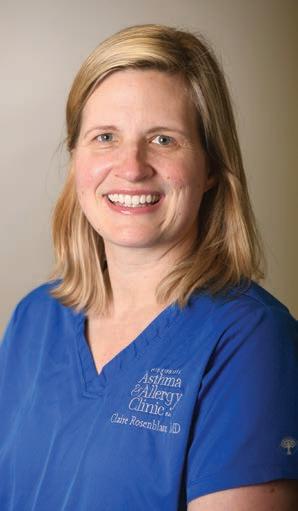
Where did you attend school?
BA in Psychology from the University of Mississippi, MD from University of Mississippi Medical Center, Internal Medicine Residency and Allergy & Immunology Fellowship: University of Mississippi Medical Center.
What inspired your medical career?
My mother was a pharmacist, so I grew up around medicine. From the time I was a little girl, I always said I wanted to be a doctor. My father was diagnosed with a medical condition during my teenage years that further inspired me to be a physician.
What values guide your practice and patient care?
With the complex nature of today’s medical system, my goal is to listen to the patients. Patients provide the answers when we have the time to listen. My faith guides my practice. I see each day as an opportunity to give back, show compassion, and care for
those in need. In our clinic, we try to make sure that the patient always comes first, and I try to encourage my staff to remember that with each and every encounter.
What advice do you have for the Oxford community?
My advice would be to make sure that you are always taking care of yourself first. Stress plays a role in many areas of life and can manifest with physical symptoms. One example I see every day is urticaria or hives. Be in tune with your body and get evaluated for any concerns. Yesterday, I told a patient not to be apologetic if you need another opinion to confirm what has been told to you
or to ensure that nothing is overlooked. You are your best advocate!
How do you like to spend your free time?
Spending time with my family! I would not be able to do what I do without them and the sacrifices that I make because of my job. My children are growing up so quickly, and I am so thankful to be able to have a chance to watch them. I also like to volunteer, and I am so thankful to be able to continue this through the Junior League of Oxford. Most recently, I have developed a love for Mahjong, and I love to play with my friends! It is a fun game that makes me think, but it is also my stress reliever!
Where did you earn your degrees?
MD at the University of Mississippi Medical Center, Pediatric Residency at the University of Mississippi Medical Center, Allergy/ Immunology Fellowship at Louisiana State Univeristy in Shreveport.
What values guide your

practice and patient care?
A passion for the practice of medicine and the ability to significantly improve my patients’ quality of life.
What advice do you have for the Oxford community?
Exercise at a level appropriate for your age, eat healthy, and keep up with your medical checkups.
If you could pick any superhero to be your sidekick in the hospital, who would it be?
Superman, for his desire to help others.
How do you like to spend your free time?
Time with family, golf, exercise.



Where did you attend school?
I completed my Bachelor of Arts at the University of Mississippi before pursuing a master’s degree in Audiology at the University of Southern Mississippi.
After finishing my clinical fellowship at Children’s Hospital in Little Rock, I returned to Oxford.
What inspired you to pursue your career?
My cousin, a speech pathologist, inspired my interest in the field, but once I started my undergraduate studies in Communicative Disorders, I found that my true passion was in audiology.
What values guide your practice and patient care?
Trust, compassion, equality and excellence.
What advice do you have for the Oxford community?
If you or a loved one suspects hearing loss, it is much better to be tested and treated at an earlier age, as hearing loss can be linked to dementia. Also, when buying hearing devices online, it’s important to proceed with caution. The device may not be programmed for your specific hearing loss, the warranties may not be valid, and you could face challenges in getting the promised customer service for adjustments or repairs. It’s disheartening to see
patients who have been improperly fit with their devices, as these can be expensive and not improve the patient’s quality of life. Don’t hesitate to contact our office with any questions—we’re here to help!
What’s the most bizarre medical myth you’ve heard?
Horse dewormer can cure cancer.
How do you like to spend your free time?
Traveling and spending time with my kids and friends.
Where did you earn your degrees?
I earned my Bachelor’s of Science from the University of Mississippi and then went on to earn my Doctor of Audiology from Auburn University.
What inspired you to pursue your career?
I decided to pursue a degree in Audiology because I really enjoy helping people figure out what is wrong with their hearing and then working with them to find options
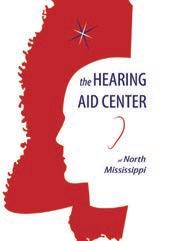
that can give them the best opportunity for hearing, communicating, and enjoying the sounds of life.
What values guide your practice and patient care?
Treating all patients with respect and dignity as well as giving my very best to each patient that I see.
What advice do you have for the Oxford community?
Get your hearing tested as soon as you notice trouble hearing. Untreated hearing loss is linked to increased
risks of falls, increased risk of dementia, increased risk of depression and so much more. Hearing loss is a very treatable disorder so please let us help you!
What’s the most bizarre medical myth you’ve heard?
Hearing loss only impacts “old” people. Actually 65% of individuals with hearing loss are under the age of 65.
How do you like to spend your free time?
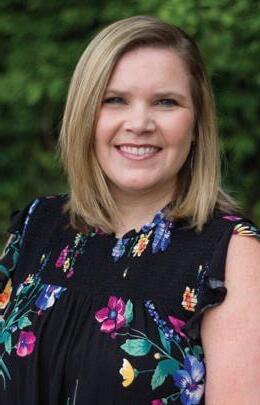
Traveling with my husband and two daughters, walking with my goldendoodle, sipping coffee, and reading.

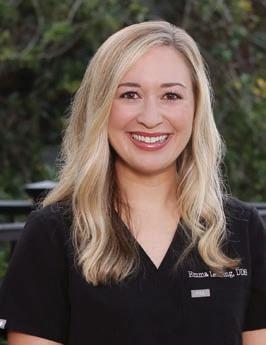
Where did you attend school?
Louisiana State University School of Dentistry
What does practicing dentistry mean to you?
Being able to make patients confident with their smile makes my job fulfilling.
What is the biggest health issue you see in Oxford?
Lack of local accessibility to Level 1 trauma hospitals or teaching and research institutions for patients with more unique or highly complicated cases.
How did you decide to become a dentist?
I come from a small town where we had to drive out of the parish for healthcare, so it was important to me to choose a career where I am able to provide for others.
What is the advice you give patients the most when it comes to preventive care?
Routinely have your teeth cleaned, but also do your
GENERAL
homework of brushing and flossing between visits in order to keep your teeth and gums healthy.
What do your patients say about their experience with you as their doctor? I usually find patients giggling in the chair as we are working. They have fun, but are always informed about the “why” and “how” of the procedures we are doing.
Where did you attend school?
Tufts University School of Dental Medicine
When it comes to health, what one thing do you wish patients knew?
I would like for patients to understand that your oral health has a major impact on your overall health.
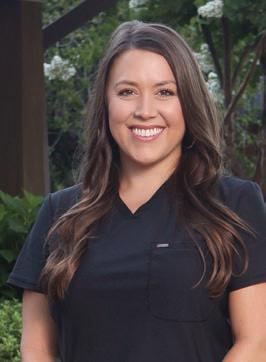
Where did you attend school?
University of Tennessee Health Science Center
What is the biggest health issue you see in Oxford?
The biggest health issues that I see in Oxford are congruent with what we typically see in the majority of our state- obesity, diabetes, hypertension and poor oral health.
How did you decide to practice in Oxford? Coming home to Oxford
after dental school was an easy decision for me. Oxford is a great town with plenty of things to do, and moving here gave me a unique opportunity to work with multiple dentists in our area.
What advice do you give patients the most when it comes to preventive care? Switch to an electric toothbrush and get your
GENERAL DENTISTRY
What does practicing dentistry mean to you?
Practicing dentistry, as cliche as this may sound, means helping people. Helping patients can look like anything, from getting someone out of dental pain to helping someone boost their confidence with a smile makeover.
How did you decide to practice in Oxford? It was was such an easy
decision for me and my husband. Oxford has always been near and dear to us, and we graduated from Ole Miss! We wanted to live somewhere safe where we could raise a family.
What is the advice you give patients the most when it comes to preventive care?
Get your teeth cleaned at least 2x per year and x-rays once per year. Go ahead

teeth cleaned every 6 months!
and schedule your next cleaning while you’re at the dentist so you won’t forget!
What do your patients say about their experience with you as their dentist? The most common comment I get is that I am comforting and fun! Dental treatment can be scary, but we do everything we possibly can to make sure you are comfortable and in control.
Where did you attend school?
University of Tennessee school of Dentistry
When it comes to health, what one thing do you wish patients knew?
Good health in a patient starts with a healthy mouth, gums, and teeth ! When a patient begins to have a physical breakdown or a prolonged illness, often an unhealthy mouth is the
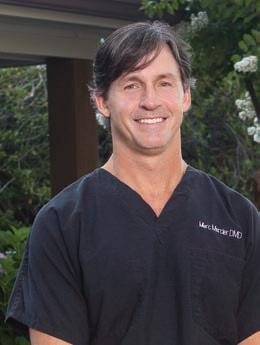
Where did you attend school?
Temple University School of Dentistry

beginning of the problem!
What does practicing dentistry mean to you? Dentistry has been such a wonderful occupation for me. To be involved in a very close way to encourage patients to enhance their life with a healthy beautiful smile is so rewarding! This never gets old and I’ve done since every week since 1975!
What advice do you give patients the most when it comes to preventive care? Call any office- don’t delay until it hurts or is infectedbe proactive and get into some dental office that will work with you both financially and time wise!
What do your patients say about their experience with you as their doctor?
I’m proud when the vast majority say “How can you
What does practicing dentistry mean to you? It means we get to help people in several different ways. We can improve their health by treating diseases, improve their chewing function by restoring teeth, and improve their confidence by beautifying their smiles.
When it comes to health, what one thing do you wish patients knew?
Many health problems begin with what people place in their mouths. If it’s bad for their teeth, then it’s usually bad for the rest of their body.
What is the biggest health issue you see in Oxford? Sedentary lifestyles and poor nutrition.
What advice do you give patients the most when it comes to preventive care? Only floss the teeth you
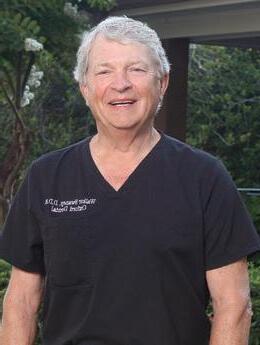
enjoy going to the dentist? Well, I did!” We have fun, enjoy what we do, have a culture that people notice, and appreciate our patients!
What do your patients say about their experience with you as their dentist? Hopefully they say it was the most comfortable and pleasant dental experience they ever had.
What is your favorite thing to do outside of working with patients? I really enjoy spending time outdoors with my wife and children.

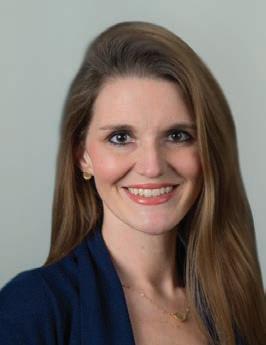
Where did you earn your degrees.
University of Mississippi Medical Center, BSN 2003,

MSN 2006, and DNP 2019.
What inspired you to pursue a medical career?
I have always had a passion for caring for people. I believe my career is a way to be the hands and feet of Christ.
What values guide your practice and care?
Integrity, care, compassion, effective and efficient health
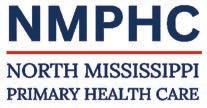
Where did you earn your degrees?
University of Alabama at Birmingham.
What inspired your medical career?
I have always enjoyed science, particularly biology, and as a nurse and now a nurse practitioner, I can use what I love to have a positive impact on my local community.
What advice do you have for the Oxford community?
Preventative care should be a priority for everyone. Taking care of yourself by getting screened at appropriate intervals, and not going to see a doctor only when something is wrong, is so important and benefits not only the patient,

care. I strive to offer patients a holistic approach to care, encouraging them to see health as involving mental and physical components.
What advice do you have for the Oxford community?
Appreciate your community. We are blessed in Oxford to have numerous organizations striving to improve Lafayette residents' health. From food banks to
walking trails our community supports healthy lifestyles. I encourage citizens to get involved with opportunities to improve health outcomes for themselves and others.
How do you like to spend your free time?
I enjoy spending time with my family. I have been married for 24 years and have three children. They keep me busy!

but the patient's family and community too.
What values guide your practice and patient care?
Providing quality, patientcentered health care to all of my patients is my number one priority.
What’s the most bizarre medical myth you’ve heard?
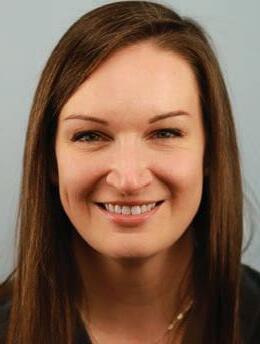
Not bizarre, but common in my practice: Being out in cold weather makes you sick

Where did you attend school?
Kansas City University of Biomedical Sciences
Years in practice?
20
How did you decide to become a doctor?
I grew up in a small town in the Mississippi Delta, Louise, and I have always wanted to take care of my neighbors. I had a wonderful family doctor, Dr. Mack Gorton, that took care of my entire family. I have always been inspired by him.

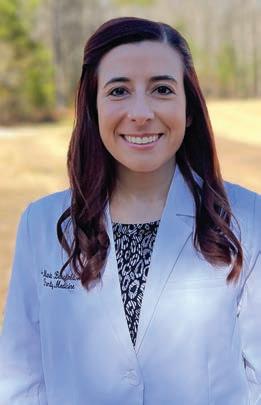
Where did you earn your degrees?
I attended the University of Michigan for undergrad and
Wake Forest for medical school. I then completed residency in Family Medicine at Carolinas Medical Center in Charlotte, NC.
What inspired you to pursue a medical career?
I decided fairly early on to pursue a medical career. I was interested in science and specifically biology and physiology. I wanted to apply that knowledge to help other people. I would say I’m still learning every

How did you decide to practice in Oxford?
I went to school at Ole Miss, so my love for Oxford and Ole Miss is great. It was never a tough decision to move to Oxford. I am a huge Ole Miss sports fan.
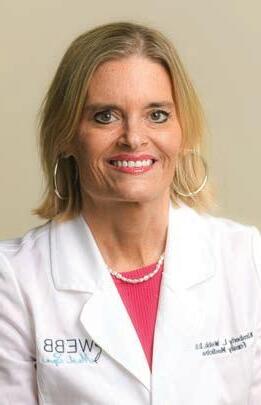

What values guide your practice and care?
I want patients to feel that we are treating them like family in our practice. Primary care physicians are the quarterbacks guiding patients through a complex medical system and advocating for quality care.
What advice do you have for the Oxford community? No matter your age (but especially if you are aging),
you need a primary care physician. We are happy to see you as a new patient or for a wellness visit!
How do you like to spend your free time?
I enjoy spending time with my husband and hound dog; we go on lots of walks. We also love to cook and try new recipes, especially in Middle Eastern and Indian cuisine. We are still cooking our way through I Am From Here by Vishwesh Bhatt.


Where did you earn your degrees?
I earned my Bachelor of Science at the University of Mississippi Medical Center in Jackson, Mississippi.
What advice do you have for the Oxford community? Pay close attention to nutrition. Your daily routine
and dietary intake greatly affects your health, the way you feel, and your chances of living free from chronic diseases and disabilities.
What values guide your practice and care?
In taking care of patients, I follow the golden rule “do unto others as you would
have done unto you.” I try to treat patients as if they are family.
How do you like to spend your free time?
I enjoy exercise, spending as much time in the outdoors as possible. I am a believer in the benefits of forest bathing.
What inspired you to pursue a medical career?
My father was a physician. I loved the respect and compassion of the doctorpatient relationship.
What advice do you have for the Oxford community? Find a primary care doctor
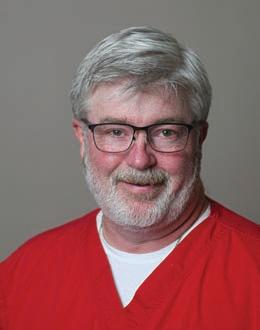
that you are comfortable with, and stay healthy and safe.
What values guide your practice and patient care? I value comprehensive care of the patient in a respectful and compassionate way. I stress prevention and strive
to keep all patients in the best health possible.
How do you like to spend your free time?
I enjoy hunting, traveling, playing golf and tennis. I enjoy spending time with family and friends.
What values guide your practice and patient care?
To make people better and when the patient leaves my clinic, they should feel like they have learned something new to make themselves live better.

What advice do you have for the Oxford community? The gap in numbers between medical specialties and primary care is expanding. Beware.
What’s the most bizarre

medical myth you’ve heard? Antibiotics (treat) kill viral infections.
If you could pick any superhero to be your sidekick, who would it be? The flash.






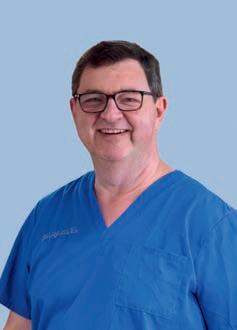
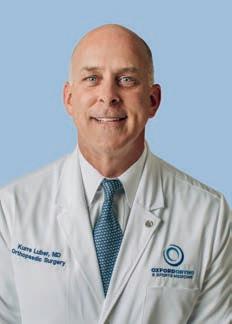

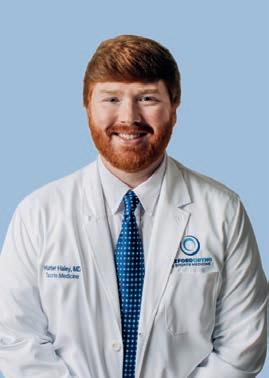
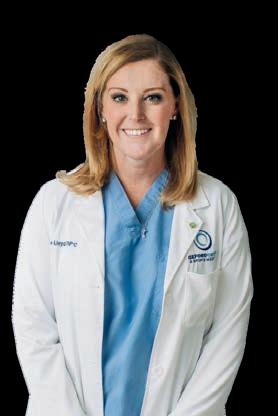

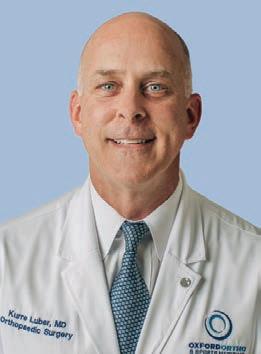
What inspired you to pursue a medical career?
I was inspired to pursue a medical career while growing up in a small town, Caruthersville, Missouri. I was extremely fortunate to have two wonderful doctors who
took great care of me. Seeing them care for others inspired me to pursue medicine. My interest in orthopedics grew from my love of sports and my desire to help people get back on their feet and fully recover.
What values guide your practice and patient care?
My goal is to treat my patients and practice how I want my family or me to be treated when seeking medical advice. I want my patients to feel valued, and I always strive to treat them in a kind, compassionate manner. If
someone is taking time from their day to come and see me, I want to make it worth their while. If someone needs surgery, I want to make sure they have the best care and follow-up possible. Their entire experience means a great deal to me.
What advice do you have for the Oxford community?It
Keep moving, Oxford. The most important health advice I can lend to Oxford is to stay as active as you possibly can. Not only is activity good for your physical health, it is also great
for your mental health. An active person is much less likely to have other health issues and if something does arise, the active person will rebound much more quickly.
How do you like to spend your free time?
I like hunting, fishing, or boating with my family. I also love covering Ole Miss sporting events and traveling with the team. I went to college here, and our family loves to cheer on the Rebels any chance we get.
What values guide your practice and patient care?
I treat everyone as I would want my own mother to be treated when she is at the doctor’s. I listen, ask extra questions, get to know what the patient is experiencing with their hip or knee, and take all steps necessary to ensure a safe and successful outcome.
What advice do you have for the Oxford community?
When considering a hip or knee replacement, talk to an orthopedic surgeon first. Don’t get lost in a wormhole on

YouTube. There is a good bit of misinformation readily available, which often scares patients or alters expectations. If you want to watch a procedure in detail, let your surgeon show you videos and explain how it will be accomplished.
What’s the most bizarre medical myth you’ve heard?
A patient once asked, if to accomplish a knee replacement, I have to take their leg completely off their body, replace the knee, and then reattach the leg. The
answer is NO, the leg stays on your body the whole time.
How do you like to spend your free time
Most of my time away from work is spent spending quality time with my wife Callie and being a Dad to my three-yearold and two-month-old. I also enjoy duck hunting, playing golf, and working in the yard when I can.
If you could pick any superhero to be your sidekick in the hospital, who would it be?
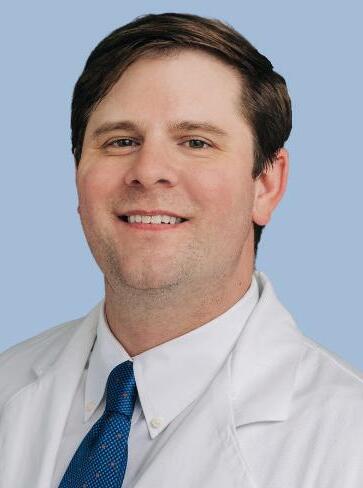
I spend a lot of time swinging a hammer in the OR, so I think Thor would be a handy sidekick. Although, essentially, I just need to borrow his mallet.

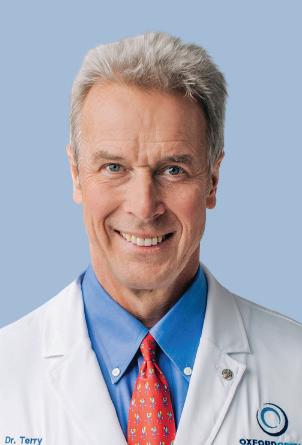
Where did you attend school?
Undergraduate School: Vanderbilt University;
Medical School: Vanderbilt University School of Medicine; Residency: Duke University; Fellowship: Harvard University
What does practicing orthopedics mean to you?
I chose orthopedics as my field of specialty partly due to the fact that we can literally fix many of the orthopedic problems which confront usthis ivery fulfulling as a doctor and surgeon.
What values guide your practice and patient care?
I always want the very best outcomes for our patients. Part of this is making sure the patient is fully engaged in the decision making process about what is best for them - we call this “Shared Decision Making.”
How do you like to spend your free time?
I like to be outdoors and spending time with my wife
What values guide your practice and patient care?
Helping one another gives meaning to our lives. I am fortunate to have a career that tries every day to accomplish this. I want our patients to know we lie awake at night, hoping they are well. Whether it is the college football player’s knee or your mother’s hip replacement, we want our patients to reach their goals.

Where did you attend school?
Undergraduate Degree: Samford University; Graduate Dehgree: University of Alabama
What advice do you have for the Oxford community?
Democrats search for equity; Republicans search for purity. These ideals are not mutually exclusive. Our community is special, but could reach new heights if everyone takes a discerning attitude toward social media and realizes that foreign entities are trying to divide us.
What’s the most bizarre
medical myth you’ve heard?
Healthcare workers do not care for someone fully because the patient is an organ donor.
How do you like to spend your free time?
I have Labrador retrievers that are competitive field trial dogs. I enjoy training the dogs and competing as a team.
If you could pick any superhero to be your
Medical: UAB School of Medicine; Residency: University of Florida; Fellowship: Andrews Sports Medicine & Orthopaedic Center
What values guide your practice and patient care?
I strive to treat every patient like they are family member.
What advice do you have for
the Oxford community?
Stay active. If a medical or orthopedic issue is keeping you from doing the things you want to do, seek medical care and try to remedy it and keep you moving
What’s the most bizarre medical myth you’ve heard?
A patient was once convinced she caught diabetes from her husband.
and three grown children.
When it comes to health, what is one thing you wish your patients knew?
I think that exercise (even just walking on a regular basis) and a good diet are two of the most important things people can do to improve their health. Addressing these two things not only can help with medical issues, but also help with bone and joint health.
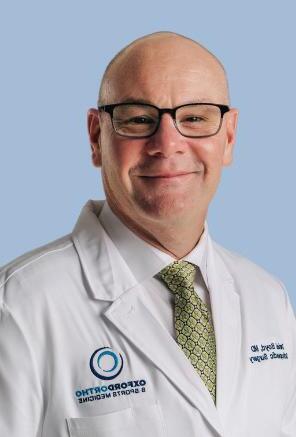
sidekick, who would it be?
My son, Speight! Those who know him know he is a hero.
How do you like to spend your free time?
I enjoy spending time with my wife and two young kids. I also enjoy spending time outdoors hunting and fishing.
If you could pick any superhero to be your sidekick in the hospital, who would it be?
The Flash.
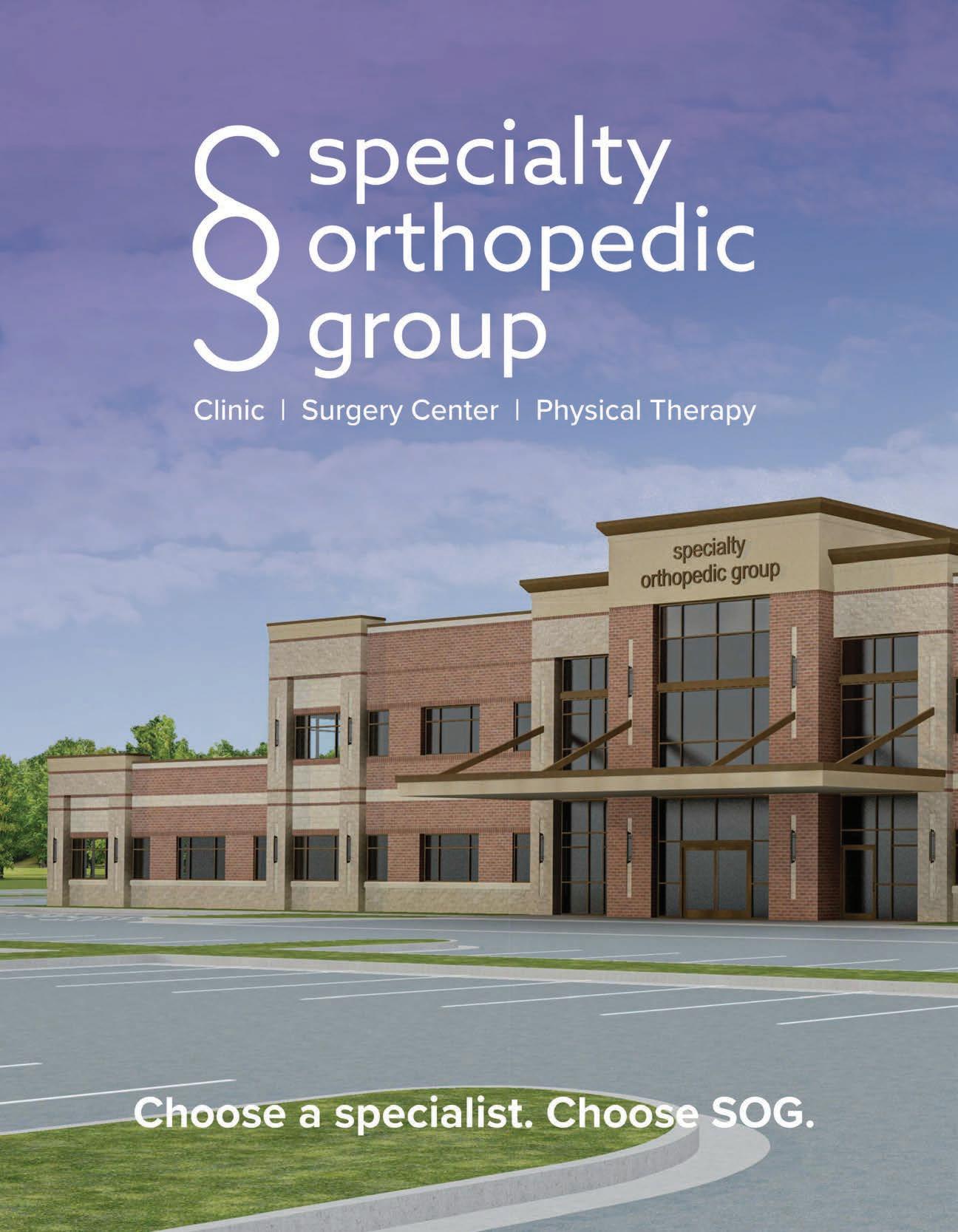

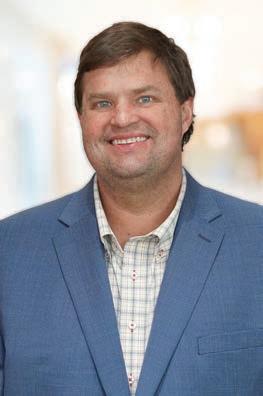
What inspired you to pursue a medical career?
When I was in my mid-20s, I sustained an ankle fracture that required surgical
fixation, which inspired me to pursue a medical career. I was very interested in the entire process from start to finish.
What values guide your practice and patient care?
I see a lot of complicated foot and ankle conditions. Many of these patients have seen numerous other providers and are either never given a diagnosis or never given a treatment plan that helps alleviate their pain. I like for my
patients to know what the diagnosis is and understand what it really means. My job as an orthopedic surgeon is to help the patient understand why they are having the problem that they are having and to guide them through the decisionmaking process with their treatment plan.
What advice do you have for the Oxford community?
Most foot and ankle pain can be successfully treated without surgery. If surgery is
required, newer techniques allow for earlier weight bearing, smaller incisions, and faster return to activities you enjoy.
How do you like to spend your free time?
I have a beautiful wife and daughter I enjoy coming home to daily and spending time with. On the weekends, I enjoy working on our farm and being outdoors. One of my favorite places to be is in my tractor seat.
Where did you earn your degrees?
I earned my medical degree at the University of Mississippi Medical Center in Jackson.
What inspired you to pursue a medical career?
I have always enjoyed helping people, working
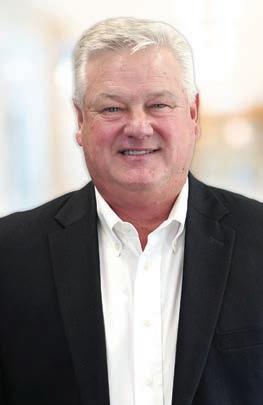
with my hands, and solving difficult problems, so surgery has always felt like a natural fit.
What values guide your practice and patient care?
My faith has always been the main driver of everything that I do. I strive to treat each patient like they are
one of my family members.
How do you like to spend your free time?
I enjoy spending my free time hanging out with my family, attending any Ole Miss sports event, and hunting.
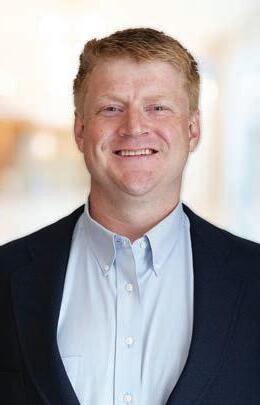
Where did you earn your degrees, and what inspired you to pursue a medical career?
Tulane University. My father. A Tulane-trained General Surgeon.
What values guide your practice and patient care? Treat every patient like family.
What advice do you have for the Oxford community? When you have an injury, make sure you seek out a physician well trained for your problem.
What’s the most bizarre medical myth you’ve heard? Soaking your broken ankle in Epsom salts will cure it.
If you could pick any superhero to be your sidekick in the hospital, who would it be?
My surgical tech, Jimmie Willingham.
How do you like to spend your free time?
Golfing, hunting, being at my farm.
Where did you earn your degrees, and what inspired you to pursue a medical career?
I finished medical school, residency and spine fellowship at the University of Mississippi Medical Center. My grandmother was a nurse and she led me to the medical field.
What values guide your

Where did you earn your degrees?
Louisiana State University.
What values guide your practice and patient care?
“Do the right thing .” - Dr. George Russell.
Where did you earn your degrees, and what inspired you to pursue a medical career?
University of MS Medical Center - A desire to help
practice and patient care?
I treat every patient as I would my mother or son.
What advice do you have for the Oxford community?
Let God guide you along your journey through life.
What’s the most bizarre medical myth you’ve heard?
Popping joints causes
arthritis.
If you could pick any superhero to be your sidekick in the hospital, who would it be?
Dr. Strange.
How do you like to spend your free time?
I love the beach and my family.
What inspired you to pursue a medical career?
I was inspired to pursue medicine when I was 15 and irrigating crops in the 105-degree heat on my Dad’s farm, and I was looking for any alternative to that.
What values guide your practice and patient care?
I want what is best for my patients. Every patient I see, I always ask myself, "If this were my family member, how would I want them
treated?" I am honest with people, and I tend to be pretty conservative when it comes to offering surgery as an option.
What advice do you have for the Oxford community?
Maintaining a healthy weight is paramount for back-related issues. Daily exercises and stretches can make a world of difference. If you continue to have neck or back issues despite this or would like to discuss your issues with a specialist,
others and make a positive difference.
If you could pick any superhero to be your sidekick in the hospital, who would it be?
Hulk Hogan, the real American. I would probably get a flip room in the OR whenever I wanted it with him.
How do you like to spend your free time?
I enjoy playing with my kids, yelling at Ole Miss or whomever they’re playing with, burning briskets on the Traeger, and watching music videos on YouTube.
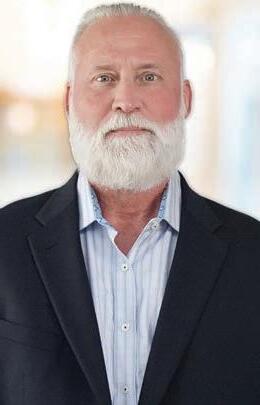
please call my office.
If you could pick any superhero to be your sidekick in the hospital, who would it be?
Superman for his X-ray vision. It would make my surgeries much easier.
How do you like to spend your free time?
Most of my free time is spent with my wife and 3 children, all under 4 years old. When I do have time, I love hunting and fishing.
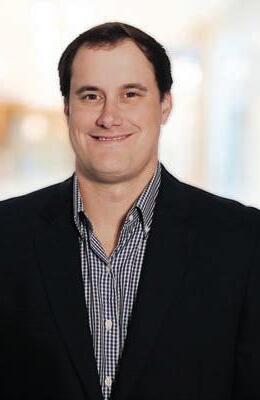
Where did you earn your degrees, and what inspired your medical career?
I graduated from Ole Miss with a degree in Biochemistry. My dad inspired me to go into orthopedics.
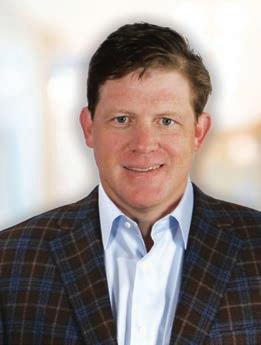
Where did you earn your degrees?
University of MS undergrad, medical school, and residency.
What values guide your
What values guide your practice and patient care?
Patients frequently ask me, “If that was your family member, what would you recommend?” I would only recommend what I would recommend for a family
member. My patients are part of our SOG family.
How do you like to spend your free time?
Family trips and activities, hunting, yard work.
practice and patient care?
Providing excellent care while treating each patient individually, tailoring their care to them specifically.
What advice do you have for the Oxford community?
Motion and activity are important to maintain healthy joints. Also, pay attention to what you eat, and avoid processed foods if possible. Processed foods lead to weight gain and inflammation, both harmful to your joints. Your hips and knees see a multiple of your
body weight depending on activity. Genetics also, unfortunately, play a role in arthritis and joint pain. Regardless, stay healthy and active, so hopefully, you don’t have to meet me in the clinic one day.
What’s the most bizarre medical myth you’ve heard?
Rubbing WD-40 on your knee makes it feel better. I’ve never tried it, so maybe it does, but I wouldn’t recommend it as an option.
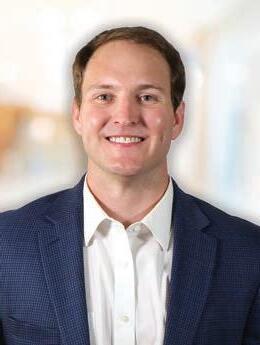
If you could pick any superhero to be your sidekick in the hospital, who would it be?
One of the minions. They seem pretty helpful.
How do you like to spend your free time?
I have 3 daughters, so most of our time is spent with them and their sporting events and social life. My wife, Ann Chancellor, and I enjoy traveling with and without the kids! I also love hunting.
Where did you earn your degrees, and what inspired you to pursue a medical career?
The University of Mississippi and I have wanted to be an orthopedic surgeon since I was a kid.
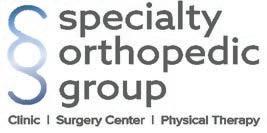
How do you like to spend your free time? With my wife Heather, three kids Eloise (17), Miller (15), and Sutton (7), spending time at the beach, and fishing.
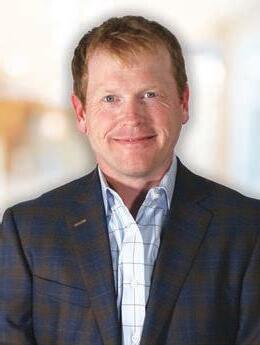

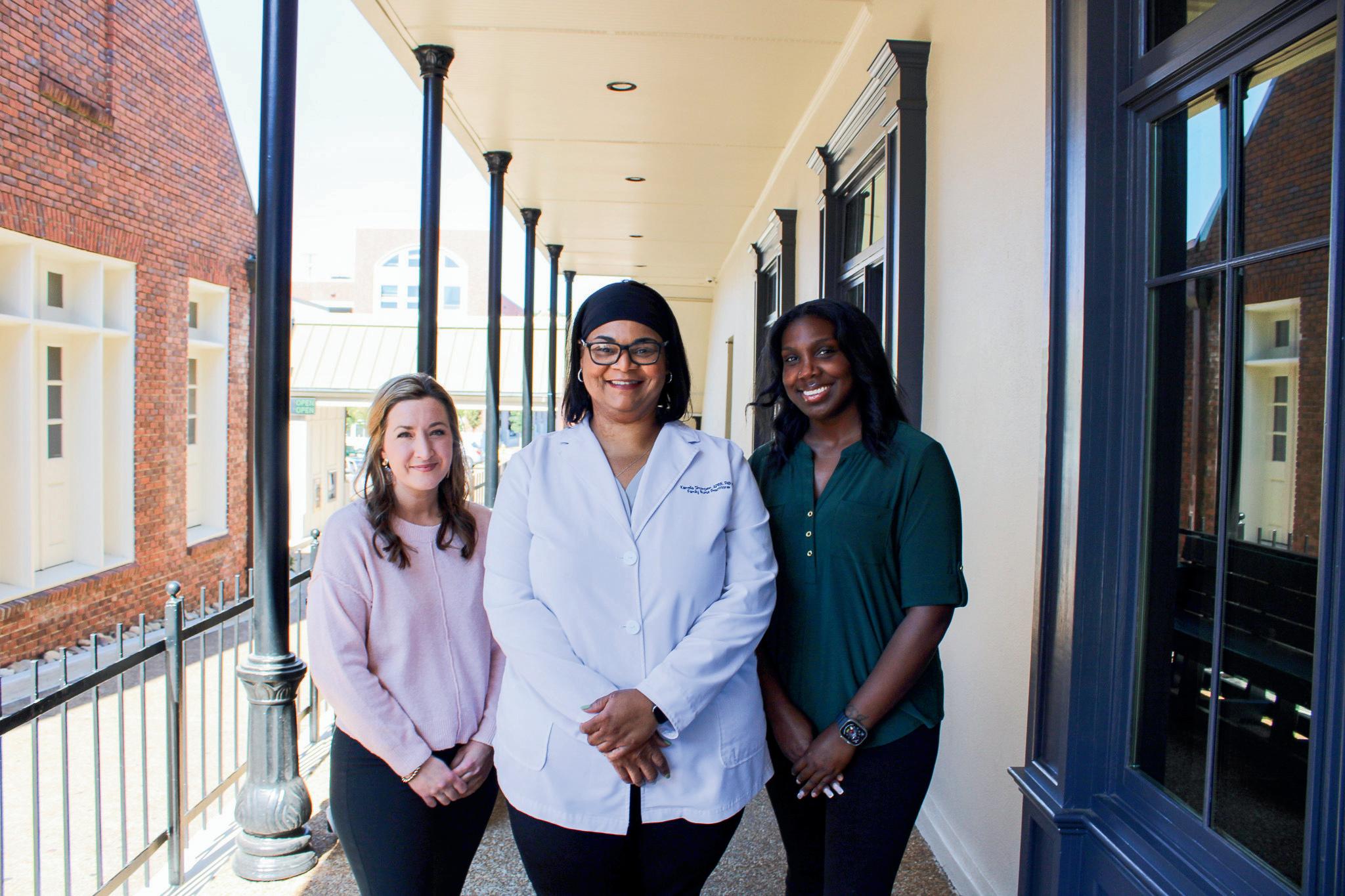




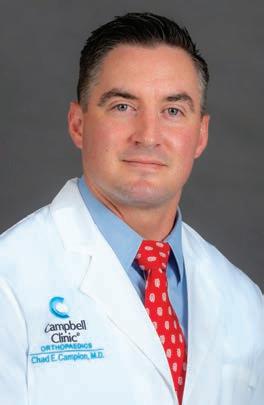
Where did you attend medical school?
New Jersey Medical SchoolRutgers
When it comes to health,
what is one thing you wish patients knew?
A healthy active lifestyle is the best way to prevent spine issues.
What does being a spine surgeon mean to you?
Spine surgery is a difficult but rewarding field. I love being able to give people their life and function back and alleviate their pain.
What advice do you give patients the most when it comes to preventive care?
Stay active and healthy. Also, smoking is one of the
worst habits you can have for spine health.
What is the biggest health issue you see in Oxford? Obesity and poor bone health.
What do your patients say about their experience with you as their doctor? Patients often tell me that they appreciate that I take the time to listen to their concerns, as well as the time I take to explain their problems and possible options for treatment. I usually try to avoid surgery
until we decide together that it is the only solution.
How did you decide to practice in Oxford?
Since starting practice I have taken care of many patients from the Oxford area. I wanted to give patients in Oxford a convenient place to get good spine care.
How do you like to spend your free time?
I enjoy working out, playing golf and hunting. I like to be active and outdoors as much as possible.
Where did you attend medical school?
University of Tennessee at Memphis
What does practicing Orthopedics mean to you?
The overriding joy of practicing orthopedics is helping patients regain movement, independence, and quality of everyday life. Helping patients maintain or regain a more active lifestyle can lead to both improved mental and overall wellbeing.
How did you decide to become a doctor?
I really enjoy the personal interaction with my patients and the ability to journey
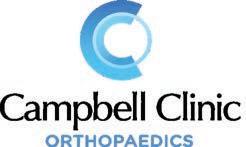
with them to a better quality of life.
When it comes to health, what is one thing you wish patients knew?
Routine checkups with Primary Care specialists are critical to long term quality of life and health.
What advice do you give patients the most when it comes to preventive care?
I have a handout I give for ten health weight tips, but common sense approach to food and exercise is the key.
What is the biggest health issue you see in Oxford? Without a doubt it is the
problem of obesity and its resulting health problems. While there are so many new treatments for diabetes, the effects of this disease on the body can be devastating.
How did you decide to practice in Oxford?
Oxford is a natural for our family. We have a long history here and I have many patients from the area. Bringing the practice closer to them makes sense for all of us.
What is your favorite thing to do outside of working with patients.
I enjoy the outdoors, travel, and especially spending
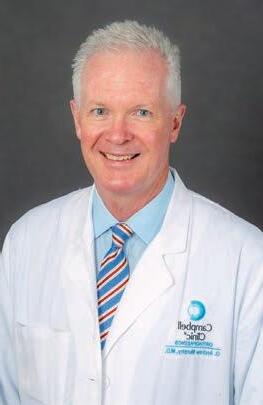
time with my wife and our children and grandchildren.
What do your patients say about their experience with you as their doctor?
I hope they say that I really listen to their concerns and goals for treatment. That is the first step to success.
What do you wish patients knew about health?
There is an epidemic of stress related injuries in youth sports and most of these are preventable by avoiding year round single sport participation at a young age.
What does practicing pediatric orthopaedics mean to you?
Taking care of children is a great honor. From sprained ankles to major trauma or life altering deformity surgery, being trusted with somebody’s child is something I treasure.
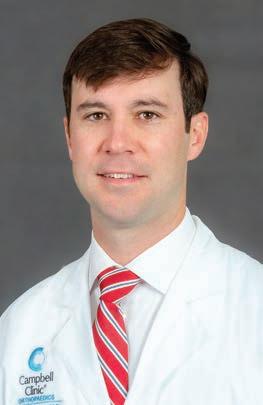
Where did you attend school?
I received my medical degree from the University of Tennessee, my residency was in orthopedic surgery at UT-

What is the biggest health issue you see in Oxford?
City growth may outpace the number of medical providers here so growth and expansion of medical services will be needed to match the change in demographics.
How did you decide to become a doctor?
Nobody in my family works in healthcare, but I was exposed to medicine when my mother had a stroke at age 40. Learning about the injury to her brain made me curious as to how the human body works.
How did you decide to practice in Oxford?
I take care of many children from the Oxford area and surrounding communities. It feels good to meet them at their home and be available for new patients who may have pediatric orthopaedic needs.
What do your patients say about their experience with you as their doctor?
My patients like that I am laid back and I get frequent comments on my cowboy boots.
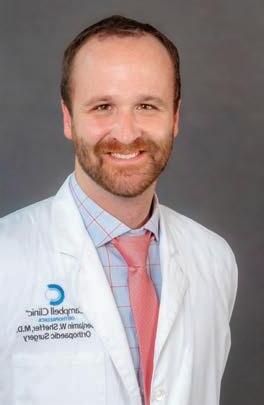
What is your favorite thing to do outside of work?
Campbell Clinic, and I completed a fellowship in pediatric orthopedics at Harvard Medical School.
What advice do you have for the Oxford community?
Get out there and be active. Life is lived best in motion.
What values guide your practice and patient care?
I put the patient first. I try to spend as much time with the patient as I need in order to understand their problem, their concerns,
and their goals of treatment. I then put a treatment plan in place that helps address all three.
If you could pick any superhero to be your sidekick in the hospital, who would it be?
My wife. She has taught me that empathy is a superpower. Even though she is not in healthcare, she is skilled at providing empathy to those in need.
What’s the most bizarre medical myth you’ve heard?
Spending time outdoors with my wife and three children. We love to fish as a family.
There are so many, but I always love the question about whether or not I’m going to use a laser to fix someone’s broken bone. So far lasers haven’t proven helpful in stabilizing fractures.
How do you like to spend your free time?
I enjoy time with my wife and children. We enjoy traveling, the outdoors, and participating in sports. We also stay active in the community including our church and our non-profit, the Forrest Spence Fund.

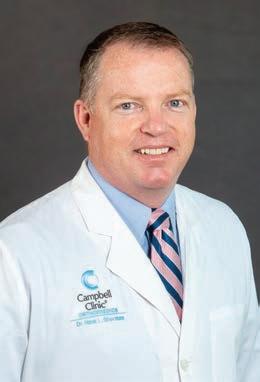
Where did you earn your degrees?
The University of Illinois College of Medicine
What values guide your practice and patient care?
Treat patients like you would want your family to be treated.
What advice do you have
for the Oxford community?
Stay as physically and mentally active as possible as long as possible.
What do you wish patients knew about your approach to healthcare?
As humans, the feelings regarding our own healthcare and mortality often discourage us from
seeking care. I like being an individual that helps to alleviate those fears.
What’s the most bizarre medical myth you’ve heard?
Vaccines cause autism. It is a total fabrication and hurts our public health.
Where did you attend school?
Quillen College of Medicine
How did you decide to become a doctor?
My father was a physician and loved going to work every day. His enthusiasm was infectious and I’ve been passionate about becoming an orthopedist since I was in the eighth grade.
When it comes to health, what one thing do you wish patients knew?
It’s difficult to say one thing,
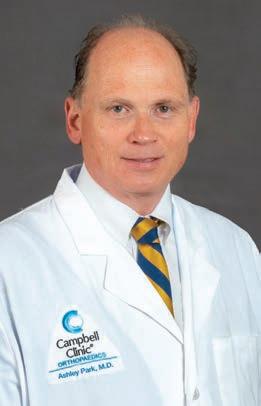
but health generally comes down to three components: eating habits, exercise, and getting enough sleep. Take care of yourself.
How did you decide to practice in Oxford?
I’ve treated many patients from Oxford over my career and they have been wonderful. A number of my family went to Ole Miss and I’ve spent a lot of time here. I love this community.
What does practicing orthopedics mean to you?
Practicing orthopedics allows me to be passionate about my career. Orthopedics improves people’s lives and contribute in a meaningful way. I’m very grateful for this opportunity.
What is the advice you give patients the most when it comes to preventive care? Participate in activities you love and keep on keeping on. You don’t have to be an athlete to be active. Be grateful for each day.
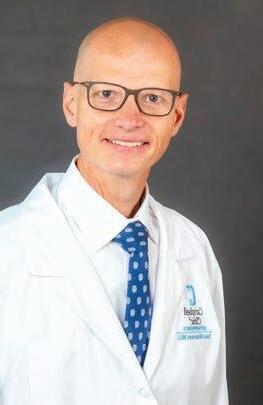
What do your patients say about their experience with you as their doctor? I hope they say I care. My patients’ well-being is my first priority.
PHYSICAL MEDICINE, BACK & SPINE CARE, REHABILITATION
Where did you attend school?
University of Tennessee College of Medicine
Years in practice?
25
What advice do you give the most when it comes to preventive care?
An active lifestyle at a
young age lays the groundwork for good habits as an adult.
How did you decide to practice in Oxford?
I take care of many people from the Oxford area and surrounding communities. It feels good to meet them at their home and be available for new patients
who may have back/spine needs. And my oldest currently attends Ole Miss, so that’s a plus!
What do your patients say about their experience with you as their doctor? Hopefully they say that I explained their diagnosis and relieved them of their back and spine pain.

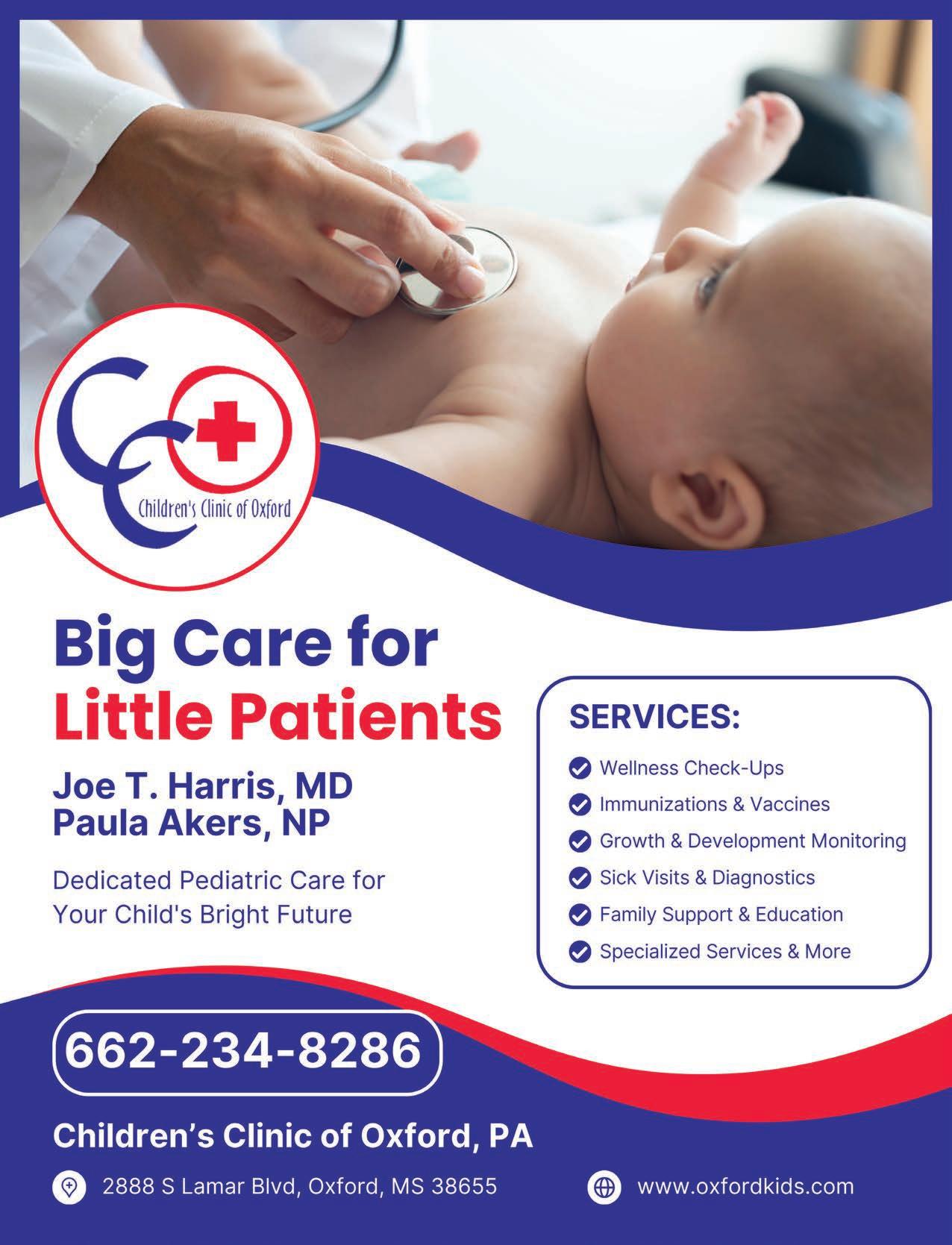

Where did you attend medical school?
The Univeristy of Mississippi Medical Center
What does practicing in pediatrics mean to you?
Having a part in helping my patients stay healthy and get better.
How did you decide to practice in Oxford?
I fell in love with the town when I was in pharmacy school here. It reminded me of my hometown of Tupelo.
When it comes to health, what one thing do you wish patients knew? Establishing healthy habits
in childhood can help prevent problems as an adult. It’s easier to prevent then it is to treat!
What is the biggest health issue you see in Oxford?
The lack of and unavailability of mental healthcare providers and facilities.
What is the advice you give patients the most when it comes to preventive care? You have to establish good health habitsto live a health
life.
What do your patients say about their experience with you as their doctor? Sometimes the patients aren’t too happy especially if they’re getting vaccines, but their parents are appreciative of the caring nature of our practice.
What is your favorite thing to do outside of working with patients? Being outdoors, playing golf, taking care of my lawn.
Where did you attend school?
The University of Mississippi Medical Center.
Years in practice?
40 years as a Registered Nurse, with 26 of those being a Nurse Practitioner

When it comes to health, what do you wish patients knew?
I want patients and their families to know that they have control over their health through making healthy choices such as eating healthy, exercising, sleeping, limiting screen
time, and connecting with others.
What advice do you give patients the most when it comes to preventive care?
The main advice I give is to eat vegetables, drink water, play outside, exercise and limit screen time
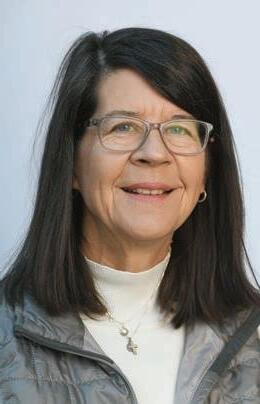
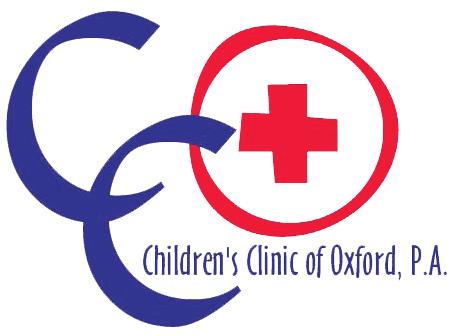

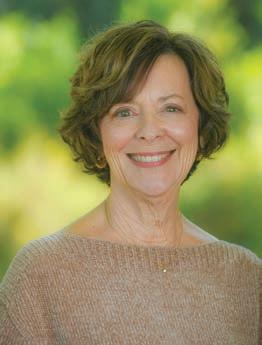
Where did you earn your degrees, and what inspired your medical career?
After many years in nursing education, I decided to

pursue my favorite specialty area of psychiatric mental health to become certified as a nurse practitioner through the University of South Alabama. I provide holistic, individualized mental health care, rather than medication focused maintenance.
What advice do you have for the Oxford community?
Keeping our brains healthy through lifestyle practices
such as mindful movement, restful sleep, wholesome nutrition, and adequate hydration can improve and even relieve many mental health problems.
What values guide your practice and care?
I believe that most of us do the best we can until we understand differently. I strive to help my clients understand how to take responsibility for their own
physical and psychological wellbeing.
What’s the most bizarre medical myth you’ve heard? That the provider has all the answers. The answers are within each of us. With the right support we can access them.
How do you spend your free time?
I love yoga, meditation, and spending time with family.


